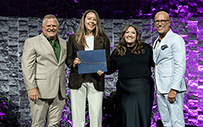
The small employer winner of the 2025 NACE Recruiting Excellence Award, heritage Moss Adams’ (now Baker Tilly) Summer Internship Experience is designed to build a strong pipeline of skilled career professionals who will elevate the profession and the firm.
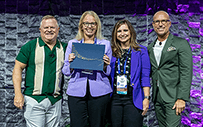
The small college winner of the 2025 NACE Career Services Excellence Award, Furman University developed its “Four-Year Pathway,” a program that spans students’ undergraduate career and prepares them to enter the workforce.

Future Business Leaders of America has integrated the NACE Competencies into its collegiate programming to bridge a critical gap between classroom learning and the demands of the modern workforce.

The Olinde Career Center at LSU launched Talking Tiger Talent as a way to modernize and scale the center’s employer outreach efforts.

Career services offices are often seen as places that offer help with resumes and run career fairs—but their impact beyond that is lost. Data can help pain a complete picture.
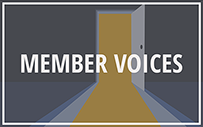
Volunteering with NACE can create uplifting opportunities to be involved with the changing workforce and allows members to learn skills needed to be a better director, professor, and a person.

When the University of Texas University Leadership Network launched in 2013, it had two main goals that remain in place today: to help students graduate in four years and to provide students who are under-resourced with an opportunity to participate in various forms of experiential learning without having to work.

The traditional office visit has evolved into an opportunity for an organization to give job candidates a glimpse into its culture and a vision for the candidates’ career there.

The North Dakota State University Career and Advising Center team has found that its Employer Town Halls held via Zoom are a great way to disseminate information in a different format than just an email.
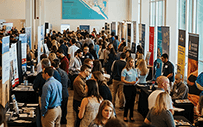
In-person activities are the most widely used and effective means for recruiting interns, according to results of NACE’s 2025 Internship & Co-op survey.

The Career and Life Design process that Hassan Akmal created is evolving. Today, AI makes this pursuit more tangible than ever, acting as an unprecedented sounding board for self-exploration.

Moving to skills-based hiring opens opportunity for a broader demographic of students to access positions where they otherwise would not meet the qualifications. Many employers include skills development in their internship programs to enhance their interns’ career readiness and bolster conversion.
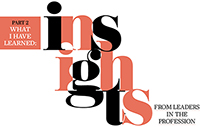
In the second of a two-part series, 13 NACE leaders offer their insight and guidance about what they have learned in their time in the profession.

To persist toward successful conversion of interns, organizations must not view engagement as a 10-week summer pursuit. Instead, engagement must gain momentum through recruiting and pre-internship, accelerate during the internship itself, and be maintained after interns return to campus.

The University of North Florida (UNF) has historically offered innovative programs, services, resources, and events to ensure students are successful and career ready by the time they graduate. This approach led leadership to embark on a new path at the intersection of UNF’s core functions and NACE’s career readiness competencies.
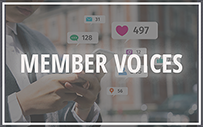
LinkedIn can be a valuable tool for students preparing to enter the workforce, but it can also cause students to miss out on opportunities if not used responsibly.
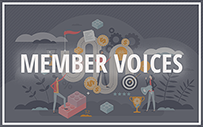
By using a gamified approach to career development, college career services can create scenarios that simulate the workplace and encourage active student participation.

Understanding the experiences, preferences, and goals of the early career Gen Z professional will help employers craft meaningful experiences that will ultimately enhance productivity and retention, while career centers will be able to better guide their students.

The College of Arts and Sciences at Indiana University Bloomington recently launched its Pillars Undergraduate Experience, a framework designed to prepare students for academic achievement and lifelong career success.
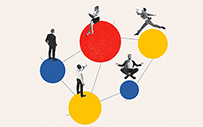
Career services professionals must prioritize teaching students how to build social capital and cultivate ties within their chosen career fields.

Among the main reasons why career center staff are not using AI with students are concerns about the technology collecting students’ personal data.

The goal for employers should be to keep autistic employees from “hire to retire,” which is the ability to sustain these employees by providing them with the support they need to build their career in an organization.

Relocation assistance may be the secret sauce to attracting top-notch interns.

To compete in the job market, students must be able to connect their experiences to skills and communicate that to potential employers. Infusing skill development across campus can achieve that. Jill Donovan, Brookdale Community College, discusses how her career center began the process of integrating career readiness campus-wide.

The Lilly Ledbetter Fair Pay Act of 2009 and pay transparency laws enacted by a number of states are helping to advance equal pay for equal or similar work.

By measuring employment brand strength, companies can identify areas to improve their employer brand, pinpoint strengths to leverage, and assess the effectiveness of their recruitment strategies, ultimately aiming to attract the best candidates and reduce hiring costs.

Networking is a valuable tool for students that offers both career exploration and access to opportunities, particularly in a competitive job market. To get the most out of its networking events, USC Viterbi School of Engineering Career Connections has taken them through several iterations to reach their current format.

There are two primary reasons that career centers might lack confidence in using AI in their work: speed and ethics.

When recruiting and hiring students with autism, it’s important for employers to train hiring managers so they understand how the hiring process might look different and adjust their criteria on how they evaluate candidates.

The most prominent elements of a successful partnership between an HBCU and an employer are gaining understanding of challenges, demands, and goals and changing behaviors.
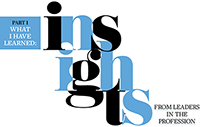
In the first of a two-part series, 13 NACE leaders offer their insight and guidance about what they have learned in their time in the profession.

Aurora University’s career services office uses ChatGPT as a tool to help its students prepare for job interviews and teach them ethical ways to use generative AI.

Hyster-Yale Materials Handling is developing a pre-onboarding program to engage and build excitement among its interns prior to their start date next summer.
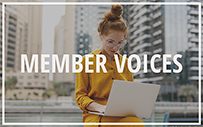
As a job candidate, students should pursue openings where their skills match the company’s needs, and by dissecting a job description and ensuring those key words find their way into their resume, students can stand out during the screening process.

To produce career-ready graduates, the Lehman College School of Business intentionally equips its students with competencies through the promotion of applied learning in its three programs.
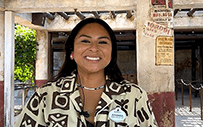
Disney provides resources to the College Fund to administer the latter’s scholarship program, called the Future Native Storytellers Program. Recently, a smaller group of program scholars was selected to receive additional enhancements to increase the awareness of opportunities at Disney for Native students.

This past summer, Arup expanded its career readiness programming for summer interns by working with its internal learning and development team to implement a series of competency-focused workshops.

Matt Purdy of Murray State advises career services professionals to think about the resources they are trying to obtain and find data that not only align with what they are asking for, but to connect them to the priorities of their administration or institution.

Forté, winner of the 2024 NACE Business Affiliate Award for Excellence in Leadership, focuses its work on systematically addressing the barriers that prevent women from pursuing MBA degrees and business leadership positions.

Liberty Mutual has found that one of the most effective ways to maintain or strengthen connections with prior interns when they are on campus is to meet them where they are, such by hosting meetups, dinners, or coffee chats on or near campus.
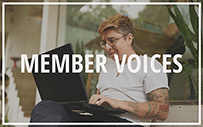
Despite the changes caused by COVID-19, some employers and educators have reinstituted traditional recruiting practices that may now present barriers to students impacted by the pandemic.

When done right, execution—meeting or exceeding students’ expectations throughout their candidate experience—helps drive success in early talent recruiting.

The Georgia Tech Career Center, large-college winner of the 2024 NACE Career Services Excellence Award, hired eight new staff members across various functional areas within the office in a process that aligned with the institute’s DEI Blueprint to, in part, closely reflect the demographics of Atlanta.

Fear of AI has turned into curiosity, says Jeremy Schifeling, who reports seeing more and more career leaders getting excited about leveraging these tools for both their students’ and their own success.

My staff wants to go above and beyond. Unfortunately, wanting something and having the resources to do it are two different things. Acting as if we have the resources is harmful to the very staff who want to provide exceptional services.

Attendees of the USC Leventhal School of Accounting’s inaugural “Accounting Without Walls” Festival left with actionable plans to implement DEI strategies in their organizations, a deeper understanding of the current DEI landscape in accounting, and more.
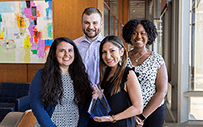
The University of Illinois Chicago, College of Liberal Arts and Sciences Career Development Office, winner of the 2024 NACE Career Readiness Excellence Award, designed an innovative eight-week, one-credit career strengths-based course for its students.
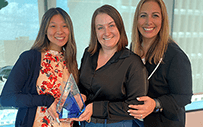
Global Atlantic Financial Group, the small employer winner of the 2024 NACE Recruiting Excellence Award, addressed a pressing need for increased diversity and innovation and a robust talent pipeline.
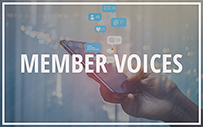
The use of gamification apps at in-person events can be invaluable for individuals who may struggle to focus or interact in traditional settings.

The college winner of the 2024 NACE Technology Excellence Award, University of California, Berkeley Career Engagement used Google Workspace products to create a data-visualization dashboard to tell its story in a low-cost, efficient manner.

The employer winner of the 2024 NACE Technology Excellence Award, Freese and Nichols implemented talent acquisition platform Yello and modified its roles and processes related to its on-campus career fair strategy to significantly increase its university hiring.
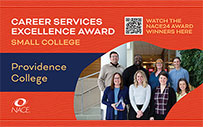
The small college winner of the 2024 NACE Award for Career Services Excellence, Providence College’s Chirico Career Center has created and honed an engaging program designed to help students as they consider their majors and explore potential careers.

Although allyship with the LGBTQ+ community different for everyone, one thing is clear: It requires action.

As the world of work continues to evolve, career development professionals must evolve their resources and services accordingly, based on the communities they serve. The school-to-work transition is common for both undergraduate and graduate students, but these two groups often have distinct career development needs, based on their identities, developmental stages, and life roles among other distinguishing characteristics. For colleges and universities to effectively promote the career success of their alumni, a customized approach will not only make services more accessible to graduate students, but more relevant as well.

Career services professionals can help students use AI tools effectively and avoid common traps and mistakes.

Northwestern Mutual shifting the focus of its internship program to development of career readiness competencies seemed like a natural progression since the company was already focusing on themes similar to those identified by NACE’s competencies.
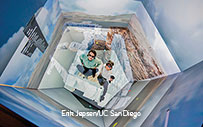
The UC San Diego Student Employment Program employs more than 6,000 students who work in more than 170 departments across campus.

Student employment can be a potent catalyst for transformative learning experiences, but is often relegated to the sidelines.

Winner of NACE’s 2024 Diversity, Equity, and Inclusion Excellence Award for colleges, the Georgia Tech Career Center’s Georgia Tech’s AuthenTECH Partnership initiative leverages staff to provide population-specific resources, expand programming, and cultivate partnerships to advance equitable career outcomes.
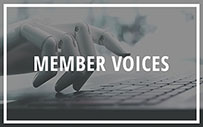
Because of the potential challenges of using career services effectively, international students may turn to artificial intelligence for their career-related questions without fully realizing the possible negative outcomes related to it.

Landmark College, an institution exclusively for students who learn differently including those on the autism spectrum, champions a strengths-based model and gives students the skills and strategies they need to achieve their goals.
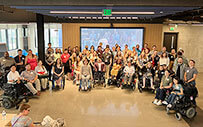
Winner of the 2024 Chevron Innovation Award, the Gregory S. Fehribach Center at Eskenazi Health empowers Indiana college students with physical disabilities to achieve equitable employment following graduation.
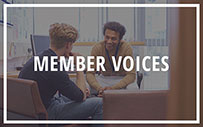
When it comes to advising students on the importance of professional skills, demonstrating those skills in your day-to-day can go a long way.

Because Liberty Mutual Insurance hires hundreds of interns a year, it equips interns with a wide range of skills and has the skill profile of an intern closely align with its early career roles to prepare interns for potential future full-time roles.

For Spring Hill College, the work to attain a high knowledge rate on its first-destination survey begins in the fall.
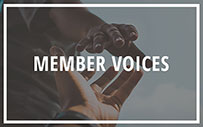
NACE offers many options to get involved, and those who choose their pursue volunteer opportunities can experience both personal and professional growth.
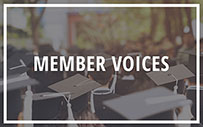
Because all talent acquisition specialists have had their own unique journeys, embracing those experiences can help them better understand and connect with students.
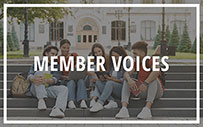
Career centers that integrate into all parts of a student’s journey in college are better positioned to effectively serve students and demonstrate their value on campus.

Cayuga Community College’s career services office launched its microcredentialing program in 2018. Since then, it has been building microcredentials in the non-credit and credit side of the institution, including developing its microcredential program and updating it to an online learning platform.

Recent data reveal that systemic barriers continue to limit progress on achieving pay equity for all—yet there are tangible, proven ways that career centers and employers can make an impact.

Visa’s internship program is designed to build full-time conversion and provide an exceptional experience for incoming talent. Phill Haig, Visa’s director of early career programs, says Visa’s target conversion rate has been 70%.

Despite achieving a knowledge rate of 90.6% on its most recent first-destination survey, the Roanoke College career center is tweaking the survey’s process to improve it.

Centre College’s three-year average knowledge rate for its first-destination survey (FDS) stands at an impressive 98%. This is especially notable given that the survey wasn’t required for students until 2023.

Consultant Katie Donovan offers tips for employers to eliminate the main causes of pay inequity for women, including that women are underpaid doing the same jobs as men and are underrepresented in leadership roles.
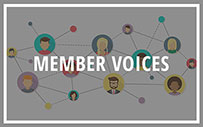
Because students may lack the professional network to get noticed, career services staff can help by leveraging their own networks to highlight students to potential employers.

A pilot study conducted among cooperative education students at University of Cincinnati tested the value of providing students with flexible due dates to help them manage their mental well-being and grow their project management skills.

Interns who feel committed to the organization because they were well treated are 7.14 times more likely to accept an offer of full-time employment.

The University of Dallas career development office listened to student feedback to pivot from texting students career-related information to sending messages via email. The results have been impressive.

Women remain underrepresented in computer science majors and careers. Two researchers conducted a study to see how women in computing experience and make sense of their internships, and how their internship experiences shape their future career plans.

A former dean now working with hiring organizations offers five lessons for how higher ed can work with industry and move the needle for students—especially low-income and first-generation students.
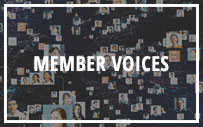
Students who begin building their social media presence while still in college will have an advantage after graduating, and there are several easy steps they can take to get started on LinkedIn.

The University of Western Florida CDCE recently launched its AI Career Toolkit to address AI use, challenges, and possibilities by students exploring careers and the career coaches supporting them.

Visa has found that hiring diverse talent is easier to accomplish the earlier it can engage students and it helps create a network of brand evangelists who are able to advocate for Visa on campus.

As HBCUs are a key source of high-quality, diverse talent for employers, there are benefits for both institutions and organizations in developing successful partnerships.

The Yale Office of Career Strategy enlisted the help of key partners to create an assessment tool that incorporates design-thinking principles and is available to everyone, not just Yale students and alums.
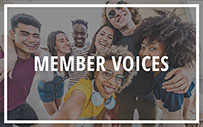
As Gen Z enters the workforce, there will be a shift in workplace culture and expectations, and employers who have embraced these changes have an advantage are positioned for success.

The career services office at Colorado Boulder launched an Artificial Intelligence Working Group to collect information on developments, discuss campus applications of AI, and more.

Caregiving students are more likely to tap into the help the career center can offer than their non-caregiving counterparts, but may be stymied by scheduling conflicts that arise with in-person offerings.
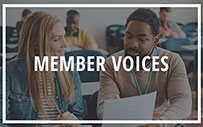
The classroom can be a valuable resource for students to develop the skill and mindset to think of themselves as professionals and describe how their skills relate to their field.

UCSD’s Rady School Career Management Center is addressing and creating resources around AI to guide students in its effective, safest, and ethical use during the college recruiting process.

To foster a truly diverse and inclusive workplace, employers should expand their DEI efforts to encompass what is increasingly being referred to as DEIA—or diversity, equity, inclusion, and accessibility.

As October is National Disability Employment Awareness Month, several organization offer resources about disability inclusion for employers and career services offices to use now and throughout the year.

To make McPherson College students aware of the skills they are developing during their campus jobs, Amy Beckman incorporated career readiness competencies into student job descriptions and supervision.

The University of California, San Diego Career Center developed the Triton Career Readiness Passport to help students launch a personal career journey by answering a simple question: Why?

Getting faculty buy in, having liaisons in different departments, and having the faculty be program champions was the key to the success of Georgia State’s “College to Career” career readiness initiative.

The Williams Companies evaluates talent for internships based on the NACE Career Readiness Competencies, focusing on the competencies where it has seen gaps in its intern class.
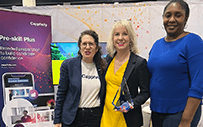
In 2022, Cappfinity partnered with EY’s UK student recruitment team to deliver an immersive, inclusive, and differentiated approach to early careers recruiting, creating VR for intern attraction and development.

Career centers looking to increase FDS response rates might want to focus on communicating regularly with students, providing participation incentives, and ensuring the process is convenient for students.

Not only does PathwayU offer student assessments, but it also provides guidance based on predictive knowledge that accounts for the user’s sense of purpose and meaning.

While moving to a virtual world and with little experience using virtual tools, William & Mary career center staff connected students and alumni by creating the Professional Development Academy.
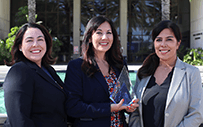
CSU Fullerton’s “I Am First” program teaches first-generation students how to create social capital through a curriculum that empowers students to cultivate agency in their career search.
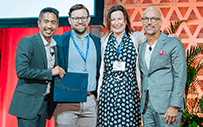
The Villanova University Disability Inclusion in the Workplace Conference is a half-day program designed primarily with hiring employers in mind to help them build disability inclusion into internship and entry-level hire experiences.
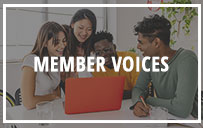
Internships can provide students with valuable professional skills but also a professional network, which can be even more valuable upon graduation.

Many URR and career services functions are using artificial intelligence (AI) to streamline their processes and enhance their operations. However, there are potential legal risks adopters should consider as they move from dipping their toes into the AI pool to fully diving in.

Dominican University, a Hispanic-serving institution with 64% of students identifying as Latinx and located just outside of Chicago, launched its successful career development program in its Brennan School of Business in fall 2017.

In 2021, Hope College’s Boerigter Center for Calling and Career partnered with several computer science majors to develop a custom, interactive application for the college’s students and visitors to see a visual representation of the locations of Hope alumni around the world and their jobs. It also shows current job and internship openings in a given city.
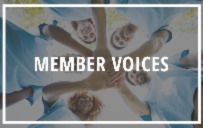
Through relationships made through volunteering, you can gain knowledge and perspective to grow both professionally and personally.

Some of the rewarding aspects of being a URR professional include changing people’s lives and providing a seat at the table for many who may not have been historically represented.

BYU works to help students understand that they have these transferable skills and competencies that can be used in a variety of ways in a variety of situations.
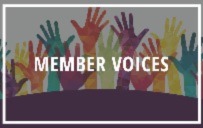
Deciding to volunteer may not always be an easy decision, but it will ultimately be a personally fulfilling one.

In a unique interview with ChatGPT, NACE asks the AI language model how it feels about its use as a tool in the job search, career readiness, and talent acquisition; the ethics of its use; and more.

What are some key considerations and steps for employers to take to create long-lasting, mutually beneficial partnerships with HBCUs and PBIs?

To prepare students for their transition to the workforce, career centers have to account for the standards of professionalism shifting over the past several years.
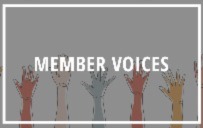
While people often consider the professional benefits of volunteering, it can also have a positive impact on your mental health, too.
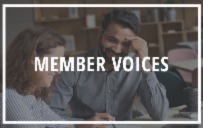
Serving as an advisor and mentor often requires working with students to achieve their academic goals while also adjusting to a new social environment.
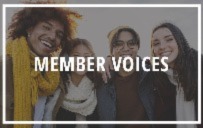
No matter what the “volunteer language,” there is always an opportunity to give back and support others.

Members of the NACE Community recently offered some suggestions to their colleagues for books to add to their summer reading lists.
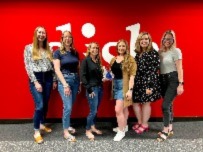
The large-employer winner of the 2023 NACE Award for Recruiting Excellence, DISH’s “Recruit Once, Hire Twice” college recruiting process brings in top interns and works to convert them into full-time hires.

Interviews with diversity, talent, and industry experts revealed confusion, conflation, and a general lack of conceptual clarity around fundamental differences in DEI& B in their organizations.

Among the key information recruiters need to know to successfully navigate their careers is to stay informed and value relationships.
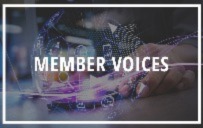
It’s useful to take time to develop your strategy and be mindful of possible trouble spots such before sharing new ideas.

Research conducted by NACE and The Center for the Study of HBCUs underscores how important it is for companies to conduct audits to assess gaps and inequities in their recruiting efforts.

A new $1 million gift supporting career development at William & Mary will triple the number of students annually who can receive university funding for unpaid and underpaid internships.

The University of Texas at Austin (UT Austin) is a public Research 1 university with 52,000 students and 18 colleges and schools, including medical and law schools. Like many large universities, UT Austin has a highly distributed model of 15 career centers within schools, and each area operates independently.
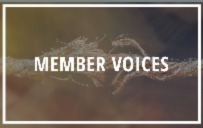
Employers who ask about weaknesses during an interview are typically seeking personal awareness and how a student can frame a strategy to minimize the consequences.
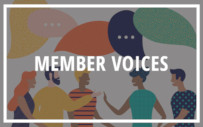
Over the summer, NACE conducted a Quick Poll to learn about fall recruiting plans, and the findings seemed to indicate that most activities would mostly return to in-person. Employers expected to spend about 70% of their time recruiting in person and 80% of career centers were planning for in-person career fairs. However, even with a return to in-person events, both employers and colleges still had to adjust their standard procedures because of the ongoing risk posed by the pandemic.

Chelsea C. Williams, founder and CEO of Reimagine Talent Co., defines “belonging” as a feeling that people have when they are seen, valued, protected, and respected. “While, ultimately, individuals determine and define their sense of belonging, I do believe there are steps we can take to build for belonging,” Williams adds.

During the pandemic in 2020, LaGuardia Community College—a public community college that is part of the City University of New York (CUNY) system—inaugurated a new president, who is an advocate for workforce development as well as for internships. In addition, the chancellor for CUNY established career services as one of his priorities.

When employers consider skills and practice skills-based hiring and skills-based networking, they bring in a more diverse slate of candidates from non-traditional backgrounds, says Asha Aravindakshan.

A grant from the United Negro College Fund (UNCF) helped to move career services to a position of more prominence at Tougaloo College and embed career readiness in the school’s curriculum.
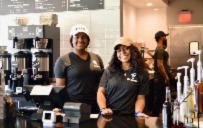
Through its Experiential Learning Platform™, Saxbys builds individualized academic partnerships to open cafes that provide exceptional paid experiential learning opportunities for students.

Career services at Michigan State University (MSU) is a centralized/hybrid organization of offices and is well-known for its Career Services Network, which is composed of career services professionals strategically located in central and college-based offices.
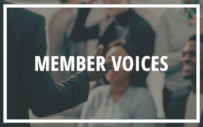
Every year, NACE hosts their Management Leadership Institute (MLI), which is designed to help participants prepare for leadership roles.
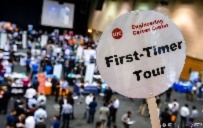
The University of Illinois at Chicago College of Engineering Job & Internship Fair Tours were created to engage more first- and second-year students in job fairs and to reduce barriers to attendance.

Diversity and inclusion have traditionally been about race and about sex, but we are all so much more than just what is visible, explains author, speaker, and social impact adviser Michele Sullivan.

William & Mary (W&M) has recently undergone a shift that has elevated career services, alumni engagement, internships, and applied learning at the highly selective, Research 2, public, residential research university.

There are key steps that employers and colleges can take to ensure that their culture is inclusive, such as providing training, planning intentionally, and holding employees accountable, says MarTeze Hammonds, Ed.D.

A University at Buffalo program uses project-based internships with local nonprofits to promote collaboration, interdisciplinary exchange, and the value of social innovation among graduate students.

College graduates in their early professional careers report significant mental health issues and view their jobs as a contributing factor. How can employers and colleges provide support?

The University of Redlands’ Career Faculty Fellows Program was launched in 2019 to help the institution scale career services and embed career preparedness more intentionally into the curriculum.

I’ll never forget my first experience at MEGACON Orlando, the largest pop culture convention in the southern United States, attended by more than 140,000 people annually. The hundreds of merchandise booths, once-in-a-lifetime meetups with celebrities, jaw-dropping character costumes, and all-day schedule of live entertainment kept the weekend packed with engaging experiences. The moments I remember most, however, came in smaller, more personalized packages:

When it comes to the development of college students’ career readiness, industry should be complementary to and support career services professionals and faculty, explain Liz Moran and Lynn Letukas of SAS.

Liberty Mutual takes a very targeted approach to the sources of talent they try to attract, engage, and hire. This extends far beyond a traditional target school list.

Skill development and early engagement are key priorities of New York University’s (NYU’s) Wasserman Center for Career Development. It addressed both of these priorities by developing a program that embedded career readiness competencies in a course for first-year students.

There has been a shift in the requirements of the labor market. Twenty-first century careers demand executive-functioning mindsets and tactical and relational skills, says Allison McWilliams, Ph.D.

NACE Brief: Understanding the Experiences and Attitudes of LGBTQ+ Students is free to NACE members. There are important—and troublesome—differences in pay, sense of belonging, and job offers that LGBTQ+ students experience during internships that impact their experience in the job search and employment, according to NACE’s newly released brief titled Understanding the Experiences and Attitudes of LGBTQ+ Students.
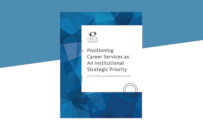
Career services needs to be strategically positioned on campus to provide the vision, guidance, and relationships to demonstrate its importance and value and to maximize student outcomes.

After witnessing the impact that the pandemic had on early undergraduate students from underrepresented groups in the tech industry, IBM scaled up its early talent ID program.

Soon after Mark Peltz was hired as the associate dean and director of career development at Grinnell College, it began a process of institutional elevation and prioritization of career services.

Several years ago, Vanguard did away with giving out swag at career fairs. Instead, as part of the sign-in process at its table, Vanguard allows students the option to choose between three charitable organizations for the company to make a donation to on the student’s behalf.

Protiviti has long felt that setting up its interns for success from the moment they first power on their laptop during the summer session is integral. When Protiviti switched to a virtual onboarding model for its interns in 2020, it realized there was more that could be accomplished in the virtual setting with intentional planning.
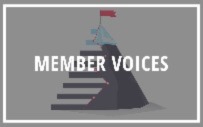
Students who set goals and develop a specific and measurable plan to accomplish that goal are more likely to be successful, and staff advisers can play a key role in this process.
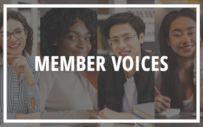
Many emerging professionals are turning to community colleges, vocational schools, and technical bootcamps to gain marketable skills.

There were gender and race disparities within the compositions of the 2020-21 intern cohort as the majority of students who take part in internships are men and identify as white, according to results of NACE’s 2022 Internship & Co-op Survey.

Launched in 2018 with a flagship two-day immersive conference, Workday’s “Future Females in Tech Engagement Program” helps women to build career confidence and make the connections they need to get started in the tech industry.

The UC Berkeley Career Center’s annual transfer student career summit is a five-hour virtual event that was created to help connect transfer students, who are often overwhelmed when navigating career opportunities, and employers that are not aware of the value transfer students can bring to organizations.
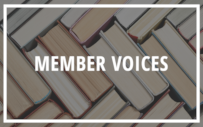
Memorial Day signals the unofficial start of summer, and for most schools, it marks the end of the busy graduation season. However, as this year’s seniors graduate, many NACE members were curious about how they could best share some final tips and advice as these grads transition from academia to the workforce.

The M&T Bank talent acquisition unit’s partnerships with employee resource groups (ERGs) has yielded a range of benefits, such as helping to identify internal talent, providing training opportunities, improving engagement across the organization, and boosting retention.
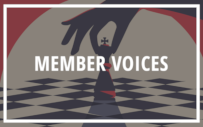
When a candidate is put in a situation to name a salary or negotiate a salary provided by the employer, the candidate is not being paid based on their merit and skills but rather on how well they handle a negotiation discussion.

In recent years, the overall knowledge rate of Davidson College’s first-destination survey (FDS) has been near or above 90%. Davidson has found several steps—such as getting an early start, using texts, and providing tailored information—to be helpful in attaining and maintaining a high FDS knowledge rate.

“Speed interviewing gives students strong, real-world practice on their interviewing skills in a low-pressure environment,” says Susan Proctor, who is the employer development manager in the career center.

While looking to use gamification to create a fun and interactive career development program for her students, Merry Olson hit on an idea that has created much interest among career services practitioners.

Intern conversion is a business imperative at all times, but especially in the current job market, when many organizations respond to the impact of the coronavirus pandemic by shrinking programs and budgets.

The Community College Research Center (CCRC) at Teachers College, Columbia University recently published a new practitioner packet that provides guidance to colleges seeking to redesign their new student onboarding practices.

Career fairs are part of the lifeblood of career services programs—and important events for students and potential employers. Many career centers are thinking of moving their career fairs online in the fall.

While virtual internships are essential in the current work environment, it is important to recognize that many benefits of a traditional internship are lost when internships are done online, says Matthew Hora.

Yale University’s Office of Career Strategy is undertaking an aggressive personal outreach effort to graduating students who indicate they are “still seeking” on the university’s first-destination survey.

The employers that could best weather the coronavirus pandemic in terms of their college recruiting programs will find ways to adapt to current conditions and still deliver on the aspects of their programs that are most important to college students.

In this time of disruption and uncertainty caused by the coronavirus pandemic, when many career services practitioners are working from home, it is crucial for them to stay connected, says Tammy Spenziero, who is in a unique position to offer guidance on working remotely.

An employer looking to set up a “campus champion” program as an element in its campus recruiting efforts turned to colleagues in the NACE Community for ideas on staffing, the responsibilities and expectations of the program, and the guidelines for campus engagement.

How do you get more students to attend your career fairs? Career services staff often brainstorm new ways to get more students in the door—and NACE members are sharing their latest ideas.

Employers play an important role in ensuring that college students are career ready and in developing the competencies that broadly prepare college graduates for this transition. “It’s a role that requires employer engagement with both students and college leadership,” explains Glen Fowler, a past president of NACE and, until his recent retirement, the recruiting and training manager for the California State Auditor’s office.

Position your internship program for success by ensuring your intern orientation provides a strong start for your interns. They will be able to make meaningful contributions to your organization, and your organization will establish goodwill with interns from the outset, putting you one step closer to conversion.

Two critical factors for limiting bias in AI systems are building diverse AI teams and implementing an enterprise-wide trustworthy AI framework.

NACE Community members share ideas for keeping interns who have accepted their job offers interested and excited until the first day of employment.

The Center for Career Development at the University of Charleston is working to engage employers by transforming transactions into relationships.

Can a current job also count as an internship? Several members of the NACE Community weigh in with their views.

Among respondents to a recent NACE quick poll, more than half of the association’s employer members and more than two-thirds of its college members reported experiencing burnout.

At the University of South Carolina, career services is working to make career readiness and employability everyone’s responsibility with its career champions program.

What tasks do your work-study students do? Career services professionals noted their student workers create content, conduct employer outreach, and more.

Employer members in the NACE Community discuss the appropriate amount of time to give an intern to decide on an offer of full-time employment.
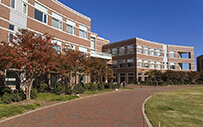
The career center’s name should reflect the services it offers to students, and help them identify it as a career development and job-search resource.
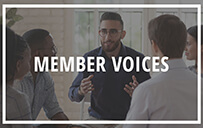
While taking that first step towards volunteering may feel daunting, especially for introverts, it can end up being a very rewarding experience.

The University of South Florida Sarasota-Manatee flipped the tables on the traditional career fair concept and held its first reverse career fair with much success.

Ellucian’s internship toolkits are intended to enhance the employee experience, while providing interns and their managers with key information and resources.

There are several research-based practices employers can implement to achieve greater success in recruiting and developing interns from HBCUs and PBIs.

What, if anything, do you give your interns to welcome them to their internship or help them remember their intern experience?

Schools that conduct an annual FDS to capture information on how their new college graduates fare following graduation can benefit their own institutions and demonstrate the value of higher education.

The University of Washington created an intern performance evaluation template that it shares with employers, and on and beyond campus.
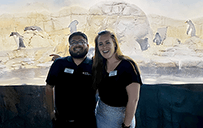
Winner of the 2023 NACE/Chevron Award, the IUPUI First Generation Career Connection Night connects first-generation students to employers to build their social capital.
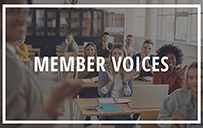
Colleges must work to ensure that students are aware that skills they’re using and developing in the classroom can be an asset after entering the workforce.

NACE offers suggestions for getting the most out of your organization’s intern surveys.

How can your career center help students to prepare for their mock interviews and set up the mock interviews to maximize the experience?

How long do employers give interns to decide whether to accept an offer of a full-time position? Employers want to give soon-to-be graduates plenty of time to make their decision.

Five years ago, Rutgers University – New Brunswick adopted the career cluster model. How is it working? How has it evolved?

At the University of Nevada, Reno the career center became the Career Studio, where students never need an appointment. All career advising is done by undergraduate students; the professional team focuses on all other aspects of career development.

Richmond merged career services and alumni services to elevate career services, provide additional resources for students, and more deeply engage alumni.

NACE looks at how two universities brought career readiness competencies to their campus.

Eight best practices provide a foundation for organizations that are focused on recruiting and hiring new college graduates.

When it comes to maximizing job fair attendance, there’s bit of quick advice from the NACE Community: Don’t hold job fairs on Friday.

At Princeton University, career services is reimagined along the themes of purpose and meaningful work.

Assistant and associate directors have one foot in vision and strategy and the other in day-to-day operations. How do these professionals excel as middle managers?

Identifying schools to target for recruitment is critical to the overall success of your recruiting effort. Approach school selection strategically and base your decisions on a foundation of solid data.

Document aspects of your organization’s internship program on an ongoing basis to, among other things, help you clarify what you do, how you do it, and why you do it.

NACE offers best practices for internship programs that feed full-time hiring, including recommendations for work assignments, work arrangements, housing and relocation assistance, and program management.

Onboarding isn’t about completing paperwork or a checklist. It is a six- to 12-month process that integrates new hires into the organization in a way that is designed to decrease turnover by increasing engagement.
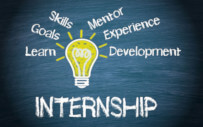
INROADS has co-developed a program to help organizations recruit students at a greater number of HBCUs across the United States for paid internships.

There are specific actions that institutions and organizations can take to ensure that they create a culture that supports the personal and professional growth of Black individuals.

During a recent NACE Town Hall, panel members shared experiences and offered ideas for moving ahead with diversity, equity, and inclusion.

Language is a key element of diversity, equity, and inclusion, and can help or hinder efforts in this area.

There are several key steps that organizations can take to best support “onlies” and provide a healthy space for them to excel at work.

An inclusive work culture mirrors the community the organization serves and yields many benefits for both the organization and its employees.

Expert and author Tony Byers cites research confirming that there are substantial benefits associated with having a diverse and inclusive workplace.

Initiative provides support and creates a culture of understanding for what it means to be a member of the LGBTQ+ community at a Catholic university.

Collaboration among campus offices is a critical aspect in supporting students with disabilities during their search for employment.

Providing impactful professional development opportunities for interns can have positive implications for organizations.

LIM College has a unique career education structure that is based on the NACE Competencies and that will allow the college to conduct longitudinal research.

Since the success of career readiness plays out in the classroom, faculty need to drive implementation of the career readiness competencies.

A cross-functional team led by faculty integrated career readiness into the College of Liberal Arts at University of Minnesota-Twin Cities.

Key aspects of building an effective neurodiverse hiring program are having a sustained supply of candidates and getting buy in from within.

There is a disconnect between students’ use of employer websites and their perception of the usefulness of those sites. Here’s why and how to fix it.
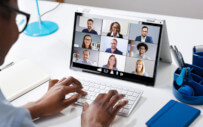
How do career services offices handle their for-credit career courses? NACE members share their approaches.

Not only can workplace discrimination and microaggressions have a negative impact on people of color in their careers, it can affect their mental health.
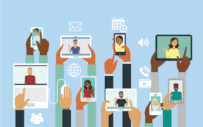
The Stony Brook Center for Remote Internships & Experiential Learning provides practical resources for employers operating remotely during the pandemic and beyond.

Members of the NACE Community recently offered some suggestions to their colleagues for books to add to their summer reading lists.

Throughout the spring, the URR functions of employers in the transportation industry were particularly hard hit by the coronavirus pandemic.

The reopening plan developed by the UNLV College of Engineering aims to minimize direct contact for services that can be effectively delivered online.

PwC is providing its more than 3,600 summer interns with an experience that is preparing them for the new virtual world.

Following the Great Recession a little more than a decade ago, many organizations learned a costly, yet valuable, lesson.
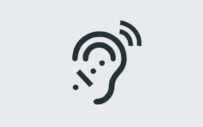
Students with hearing loss may face challenges associated with communication that may be exacerbated during this pandemic, with requirements for wearing masks and physically distancing.

Career services staff share their plans and ideas for how they might handle drop-ins in an in-person or virtual environment this fall.
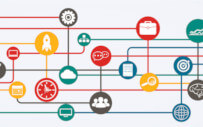
Companies that currently do not have jobs or internships should try to provide students with learning engagement support or development, and strive to make connections with them.

Swinburne University created the AccessAbility Careers Hub, which provides targeted career education for students with disabilities.

How do career centers handle alternative experiential learning experiences such as contests and hackathons that may not fall into a college’s or university’s internship bucket?

Matthew Cowley warns that any trend that emerges that is considered to be a best practice could potentially threaten equitable outcomes for marginalized students.

Last March, a group of five Florida schools shifted their joint in-person reverse career fair to a virtual “venue” in just two weeks, but with positive results.

In this new era of social distancing, what is replacing the firm, professional handshake?

For many organizations and institutions that made commitments to take action in response to racial injustice, the work has yet to begin.

CDK Global’s retooling of its internship offboarding process has expanded opportunities for interns to stay connected with the firm.

Career centers and students must be vigilant about fraudulent employers and should identify steps to take to verify the legitimacy of an employer.

The guarded optimism of early June has faded into the reality that the COVID-19 pandemic has had a significant impact on college enrollments for the fall.

NACE members offer ideas for managing the career center staff’s interactions—whether in person or virtual—this fall.

NACE’s quick poll assessing our field’s reaction to combat racial injustice show that employers and colleges have been slow to take action.

The final results of NACE’s recent quick poll show how our field is responding to the need to address racial injustice.


Abbott Laboratories’ high school internship program exposes students from diverse backgrounds across the United States to STEM fields.

WCU’s career center and autism program developed a sensory-friendly event where differently abled students feel more comfortable and confident interacting with recruiters.


Larger companies are more likely to recruit virtually during the 2020-21 academic year, according to a forthcoming report from NACE.

Although AOIC requires potential interns to be enrolled in college, in certain cases, summer interns who did not return to school because of COVID have been allowed to stay on.

Does your organization run a background check immediately after making an offer or closer to the new hire’s start date? URR professionals in the NACE Community share their approaches.

MI GEAR UP is a statewide program designed to provide support to students from high schools in low-income areas who are making the transition to college and throughout their first year there
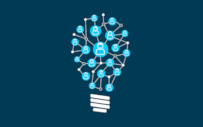
Some career centers are noticing a decrease in employer and student registration for virtual career fairs. What strategies might increase the number of employers attending?

By the end of April, more than half of employers planned to move their internship programs to virtual and nearly half expected to delay intern start dates in responses to the pandemic.

Empower Retirement is moving away from assessing candidates for “culture fit” by aligning values and providing hiring managers with interview questions and language.

Last spring, career services offices were asked about the main ways in which they were engaging students, as nearly all contact had become virtual. In addition to email, phone calls were a popular tool.

More than 87% of responding organizations report that they have a diversity recruiting strategy for the Class of 2021, the second highest level reported in the past seven years.

There are questions that career services professionals can suggest their students ask recruiters to assess an organizations’ DEI priority and commitment.

Students may ask specific questions to assess your organization’s commitment to diversity, equity, and inclusion. Be prepared to answer them.

The value of Eaton Vance’s summer internship program is evident in the attention the firm dedicated to its transition to virtual last spring and its management last summer.

How do virtual internship programs compare with their pre-pandemic counterparts? NACE members share what they have heard from students about their virtual summer internship experiences.

Research conducted by Mary Scott reveals that students are far more likely to use laptops than smartphones to complete key tasks throughout the recruiting process.
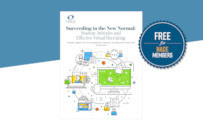
This NEW publication from NACE, Succeeding in the New Normal: Student Attitudes and Effective Virtual Recruiting, provides recommendations and insights, based on research and qualitative interviews with students, for effective virtual recruiting strategies and practices. Download your FREE copy today.

The racial injustices that marked 2020 strengthened Roderick Lewis’ resolve to create a DEI scorecard for career centers to facilitate change in the employers engaging with their campuses.

Long-promoted as a viable replacement for employers’ physical presence on campus, virtual career fairs had not gained significant traction prior to COVID-19.

Visibility and the tiering of school partnerships are two of the challenges Historically Black Colleges and Universities face in attracting employers to recruit their students.

While DREAMers tend to have qualities employers seek, there are several obstacles they face that career services professionals can help them navigate during the job search.

Many businesses and organizations are unclear about their ability to hire DREAMers who have DACA or TPS. In fact, employers are able to hire a DREAMer just as they would a U.S. citizen.

Even though the job search environment has undergone substantial shifts over the last five years—accelerated more recently by the COVID-19 pandemic—core aspects are intact.

Offering regular activities keeps interns engaged with the organization, which is crucial, especially in a virtual environment.

By better understanding and accounting for the obstacles Native students face, career services and university relations and recruiting professionals can help them achieve their career goals.

Having a formal policy helps the team in the University of Oregon’s career center team with consistency when considering postings from employers seeking unpaid interns.

Students consider personal social media to be undesirable as a recruitment channel, whereas they view LinkedIn as professional online networking.

Solo or small-staff career services offices can take steps to sustain a satisfactory level of career services and, in some cases, grow their operations.

Building trust with TCUs and Native students and bridging gaps in areas of need will aid employers in their recruitment efforts.

Many challenges with managing an internship program as a sole URR practitioner can be overcome by being resourceful, especially by involving colleagues.

While many institutions and organizations have stepped up their inclusive communication—especially over the past year—some still fall short.

Career services can play a vital role in helping student veterans realize their goal of meaningful employment after graduation.

Employers that hire student veterans have the benefit of hiring employees who have already received “the world’s best leadership training.”

The New College of Florida’s SMAH Internship Program has a twist in its approach that distinguishes it from other programs that fund students’ unpaid internships.

The lessons Cree Wolfspeed’s URR team learned during the COVID-19 pandemic have helped inform their preparation for this summer’s program and beyond.
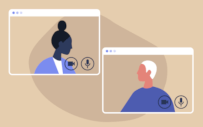
Can building authentic relationships—the very essence of effective recruiting—be replicated digitally? There are steps employers can take to personalize the student experience.
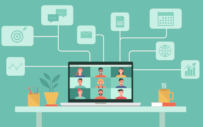
The number of offers accepted by Cigna’s 2020 cohort of virtual interns indicates that the company’s conversion strategy was successful. There are several key reasons for this success.

During the pandemic, only 22% of college students took an internship, half were in-person positions, and quality indicators for online internships were low, according to a new study.

CSU Fullerton’s “I Am First” program addresses the specific needs of first-generation college students and prepares them for the challenges they face.

When one HBCU career practitioner is building relationships with employers, she is looking for authenticity, a shared sense of purpose, and impactful engagement opportunities for students and the university as a whole.
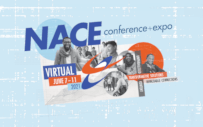
Over the course of the week-long NACE21 conference, it became clear that several topics—such as the new normal, professionalism, and career readiness—weighed most heavily on attendees.

Some career centers are seeking ideas for appreciation gifts that are unique, useful, and cost-effective that can be handed out to recruiters during on-campus events.

NYU’s Wasser-Buddies mentoring program helps shape institutional culture, equalize the experience of new hires, increase knowledge transfer, and enhance leadership development.

Cultural intelligence may be the most important individual area of change for organizations that want to bolster their recruitment and retention of culturally diverse individuals.

It is important for employers to consider the language they use because language can be loaded and have different meanings for different people.

The UNO Campus Career Council supports students in achieving their career ambitions through shared knowledge of best practices and industry training.

Career services offices can help students develop their professionalism and navigate situations when “professional standards” may fuel and foster bias.

The biggest challenge with “professionalism” is ensuring that all candidates and employees understand what it means within the context of the organization and their specific job function.
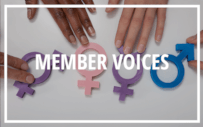
Employers and career services professionals should take a proactive approach to ensure their spaces are tangibly inclusive to a multitude of gender identities.
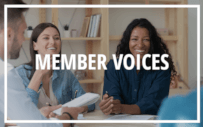
Volunteering with NACE can create meaningful professional and personal connections, develop and build skills on a resume, and create opportunities for growth.
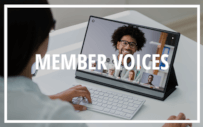
After the pandemic forced major changes to recruitment and talent acquisition, the question of what changes were temporary and which are here to stay remains.
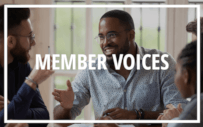
Volunteering can help students gain valuable experience and learn about what workplace environments best suit their needs, which will be helpful when applying for jobs after graduation.

The College Autism Network helped create a curriculum to help career services professionals better converse about autism and support autistic students.
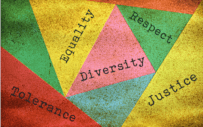
Part of the mission of UNH CaPS is to help employers establish or enhance employers’ work around diversity and inclusion by providing them with resources, consultation, and recognition.
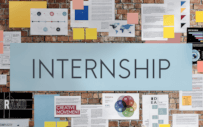
Talent acquisition professionals provide insight and ideas on topics around internships, such as converting interns to FTEs, internship duration, and more.

The shift to the virtual space has allowed for collection of career fair data that may have been out of reach with the traditional format.

The University of Nebraska at Kearney’s College of Business & Technology Career Center verifies internships to ensure they meet key criteria for their students.

Instead of pausing its college recruiting operations during the pandemic, NCR shifted its focus from on-campus to on-screen engagement, while always putting the students first.
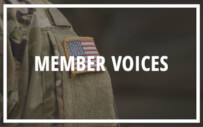
When working with military-connected students, it is important to keep in mind that while they face many of the same challenges as other students, their path to success can differ.

With student populations becoming more diverse, career centers need to change and adapt to their needs and be inclusive as they develop resources, opportunities, and programming.

Recruiting, onboarding, and retaining employees are not one-size-fits-all processes and there are challenges throughout. This is especially true for neurodiverse students.

In response to the climate of racial injustice, Dell expanded its definition of recent graduate talent to engage underrepresented minorities.
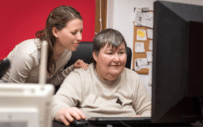
To get the best results when recruiting and hiring neurodiverse candidates, employers need to be flexible, supportive, and willing to make accommodations.
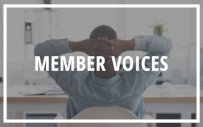
Searching for a job can itself be a full-time job and could lead to burnout. Giving students permission to rest and recharge can ease the mental burden and lead to future success.

As NI went through increasingly rapid changes due to shifts in the market, it became clear that significant adjustments were needed to its programs and strategies.

When creating programs, resources, and services for marginalized students, Stanford starts with identifying issues and needs through focus groups, research, and outcomes.

Recent research suggests that career development programs that focus on key levers of economic mobility may play a critical role in reducing or eliminating racial wealth gaps for their participants.

TAMU-CT is building employer engagement opportunities in partnership with faculty that are “a little less virtual,” but better meet the needs of its unique student population.

Reverse career fairs and reverse networking events can offer tremendous benefits, especially when held at small scale with specific program areas.

The Carolina Cluster forged a new model for career readiness and designed and implemented programs to improve employment outcomes for graduates.

Employee resource groups can be valuable tools for helping employers to bolster their diversity, equity, and inclusion efforts, and to help with effective onboarding and retention.

The State of Georgia’s reverse networking fair offered state agencies the opportunity to promote their career opportunities for college students to career services professionals.

Dr. Julia Overton-Healy of St. John Fisher College suggests career services offices need to recalibrate their understanding of who their students are and make changes to accommodate them.
To best serve a total student body, it is incumbent upon career centers to evaluate exactly who is using their services and how they are promoting their services.

Last fall, VCU began offering its Interdisciplinary Career Readiness Skills minor, an 18-credit pathway for students to develop today’s most highly sought-after job skills.

It is difficult for students to be or perform their best when they are concerned about the reliability of their internet access and technology.
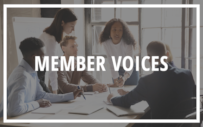
Work-based learning opportunities can be great ways for students with disabilities to gain valuable professional experience while preparing for their postgraduation careers.
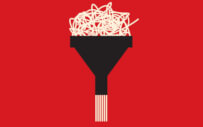
Career work is transformational, not transactional. If an institution clings to the severely outdated myth that universities should " place" students through their career centers, student learning, as well as critical connections with stakeholders, can be lost.

To prepare students for their transition to the workforce, career centers have to account for the standards of professionalism shifting over the past several years.

Cigna recently held a virtual event to increase awareness of HBCUs and spotlight the prominence and legacy of HBCUs in the Black community.
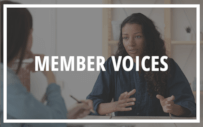
As students prepare their resumes and practice interviews for internships and postgraduation employment, it is important to remember that failures can be as important as successes.

The concept of recognizing feelings as real is a key step in developing emotional intelligence. The risk you run by not doing so is burnout.
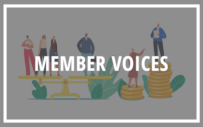
Increasing salary transparency in general and including information on potential payroll deductions can go a long way towards a more equitable work environment.
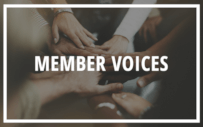
April is National Volunteer Month and a great time to reflect on all the positive benefits one can receive through volunteering.

One of the barriers that prevents more employers from partnering with community colleges is a general lack of understanding about what these schools and their students can provide.

NACE members share their ideas for fun, useful items that career centers can give to students during career fairs.
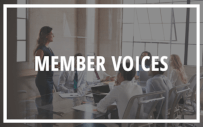
Getting involved in a NACE Affinity Group can be a great opportunity to connect with peers and gain valuable insights.
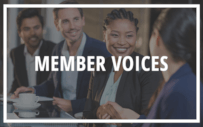
People may try to rationalize why they “can’t,” but NACE volunteers share their experiences and explain why everyone “can."

Auburn University’s high knowledge rates on its recent first-destination surveys is driven by the survey being part of a course all students are required to take.

A workshop at Notre Dame allows students to experience interviews from the perspective of both the interviewer and the interviewee, giving them valuable insight into the process.

With an eye toward the future of its workforce, Mohawk Industries provides its candidates and new college hires with development that extends beyond the internship.
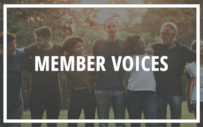
When it comes to volunteering, sometimes the opportunity can come unexpectedly, but accepting the offer can be fulfilling both professionally and personally